Diet Secrets for a Lean Body After 50, Says Dietitian
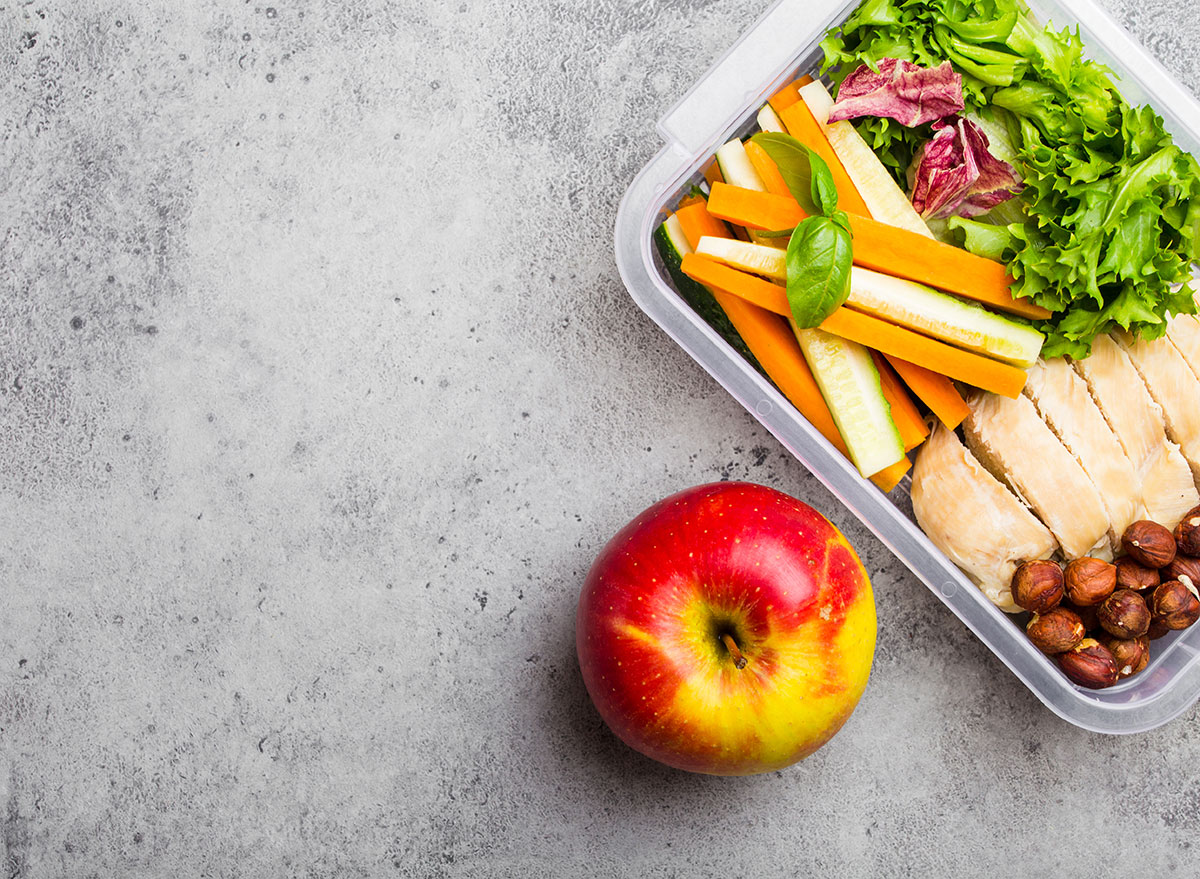
Even if you haven't made any major changes in your diet and lifestyle, once you reach the age of 50, you may notice the weight slowly creeping on your body. Whether we like it or not, weight loss is harder to achieve as we get older, in part thanks to a reduction in fatty acid turnover in fat tissue that happens naturally as we get older, making it easier for the body to gain weight. And for females, natural hormonal changes that occur during menopause can make weight gain more likely regardless of changes in diet and physical activity.
So, how can people over 50 attain a lean and healthy body? Since none of us have discovered the fountain of youth (yet!), there are some diet and lifestyle changes that people over 50 can lean on to help them maintain the body they want during this season of life.
Read on for the diet secrets for a lean body after 50, and for more on how to eat healthy, don't miss 7 Healthiest Foods to Eat Right Now.
Don't skip meals.

If you have experienced weight gain in your 50s, making sure that you are sticking to an eating schedule and avoiding skipping meals may help.
According to results published in the Journal of the Academy of Nutrition and Dietetics, skipping meals doesn't support weight loss, specifically in postmenopausal overweight and obese women.
Skipping breakfast is especially concerning, as data shows that those who skip the first meal of the day tend to eat more calories, fat, and added sugars at lunch, dinner, and snack time vs. those who do consume breakfast.
To help you from skipping meals because you're not sure what to eat, check out The Best Meal Plan If You're Over 50, Says Dietitian.
Eat low mercury oily fish two times a week.
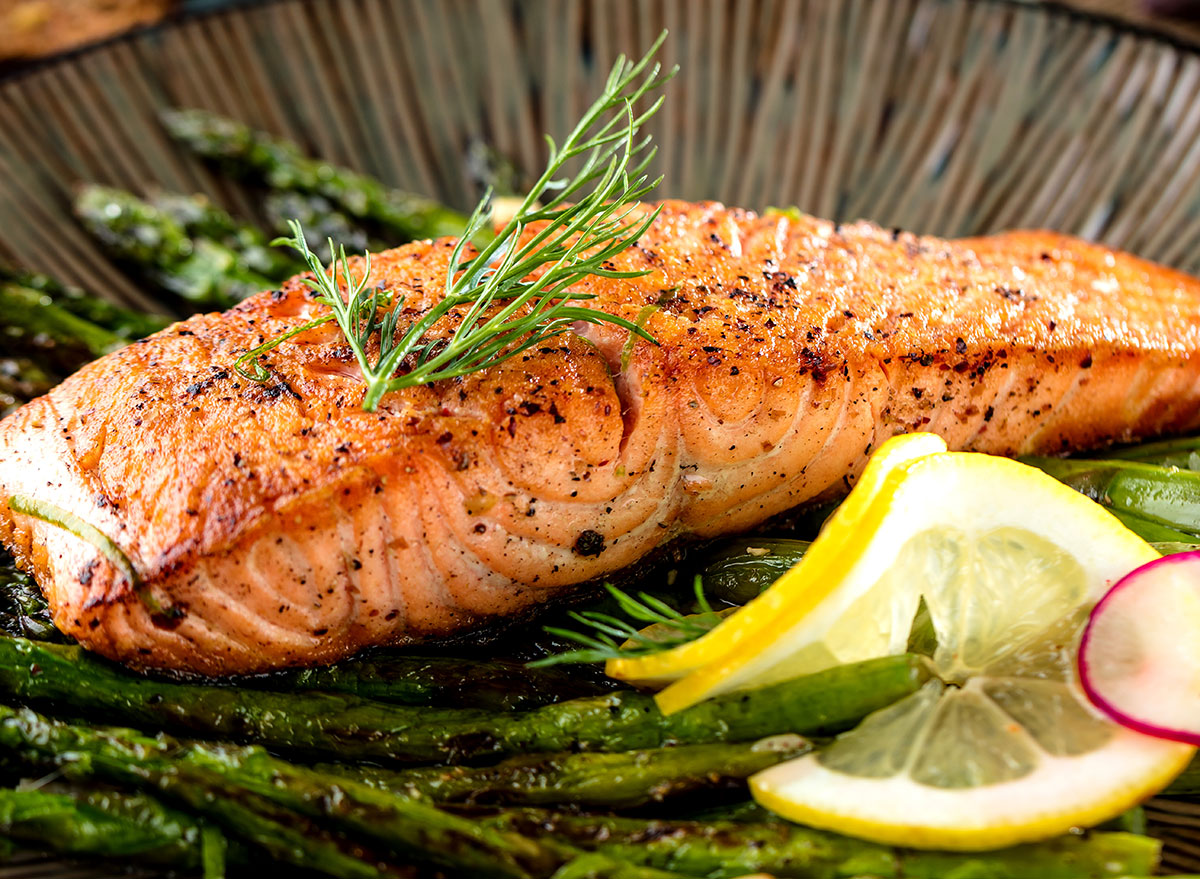
Oily fish, like salmon and herring, are rich sources of anti-inflammatory omega-3 fatty acids. And since chronic inflammation can lead to weight gain, including fish can help support a healthy weight.
If you are not a seafood lover, taking a DHA supplement is a great plan B.
Include protein with your meals and snacks.
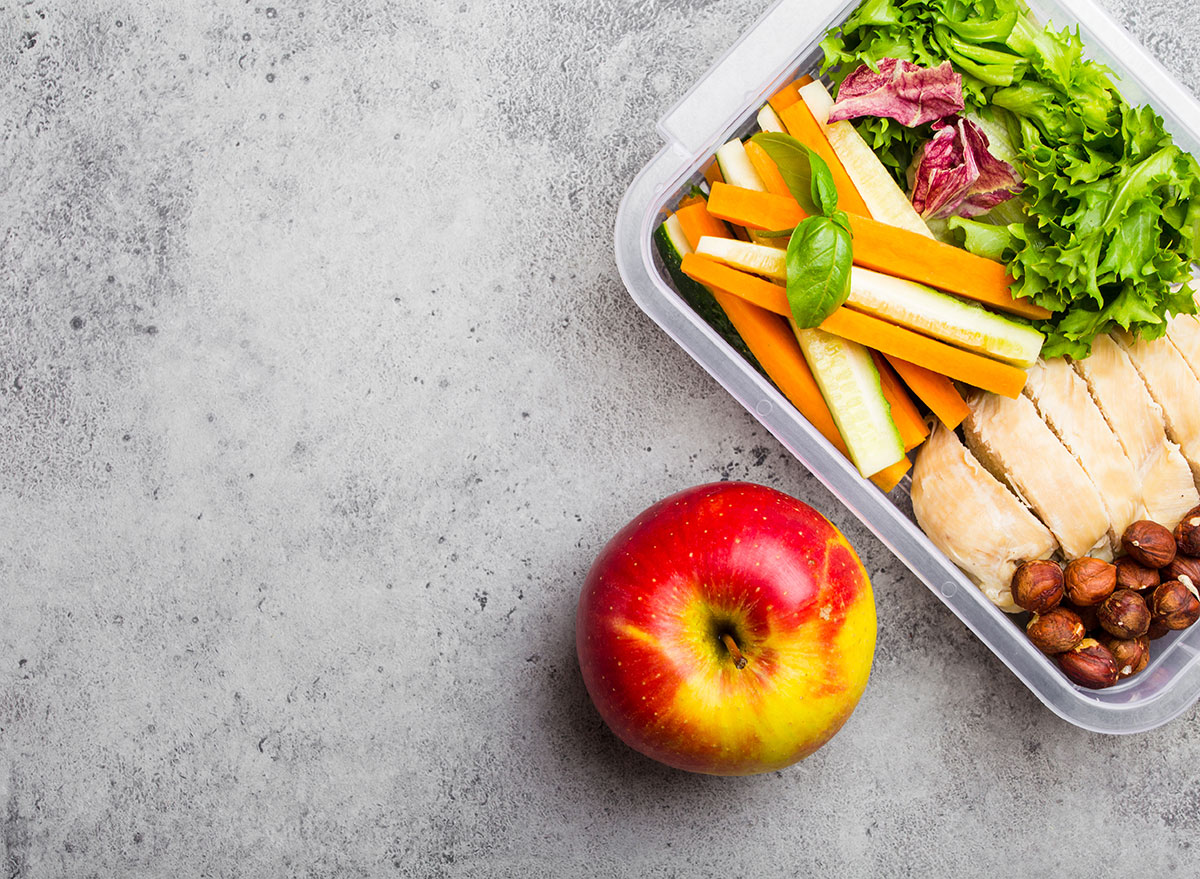
Including protein with your meals and snacks can do wonders for supporting your lean body. From promoting satiety so you don't feel hungry shortly after a meal to helping support lean body mass, protein is certainly your friend.
Since we naturally lose muscle mass as we age, ensuring adequate intake of protein once you reach the age of 50 can help you combat this condition and help you burn more calories, even while you are in a state of rest.
Include vegetables in your diet every day.
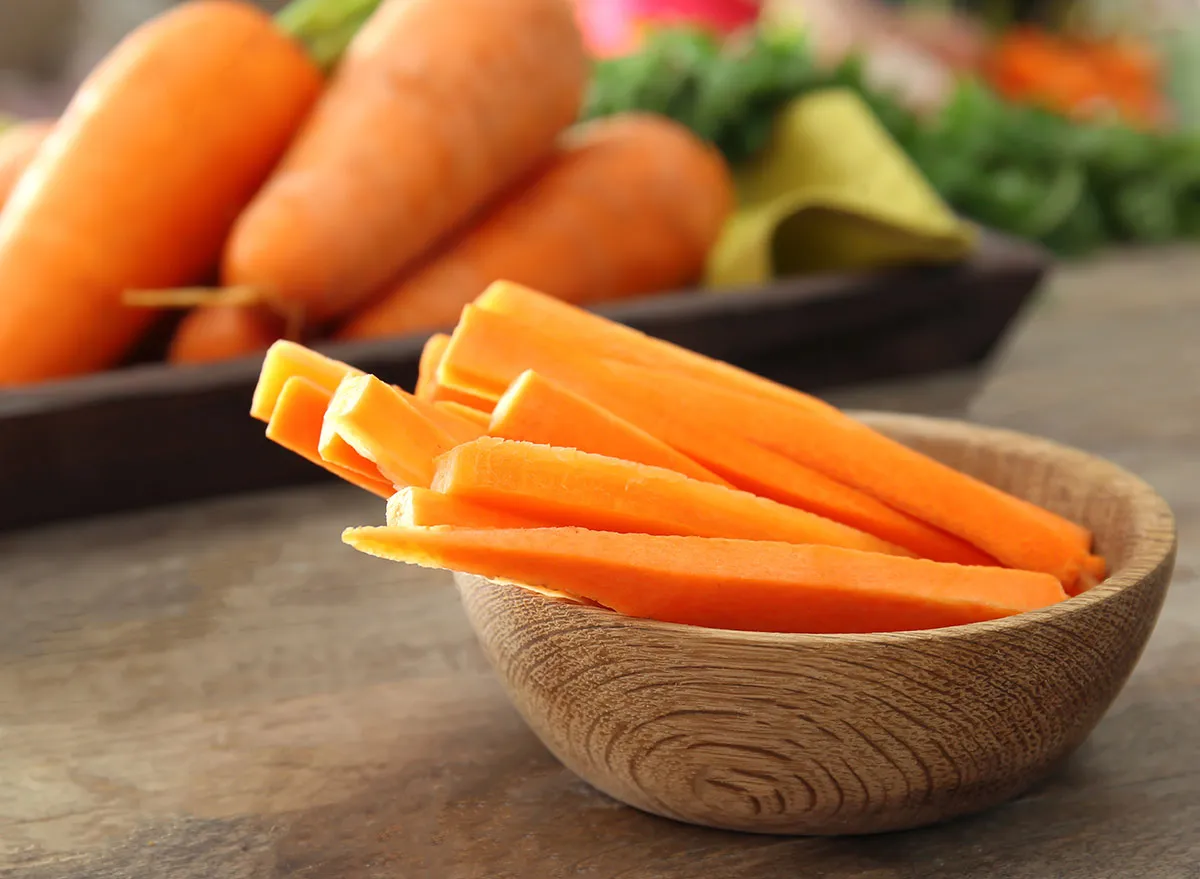
Older adults do not eat the recommended amount of fruits and vegetables, which is concerning for many reasons. And when it comes to weight management, eating adequate vegetables can be a healthy way to avoid packing on the pounds, thanks to their low calorie content and natural fiber they contain.
So, noshing on some crunchy carrot sticks or a refreshing cucumber can help keep your weight in check, especially as you age and your calorie needs reduce.
Drink calorie-free drinks like water and seltzer.
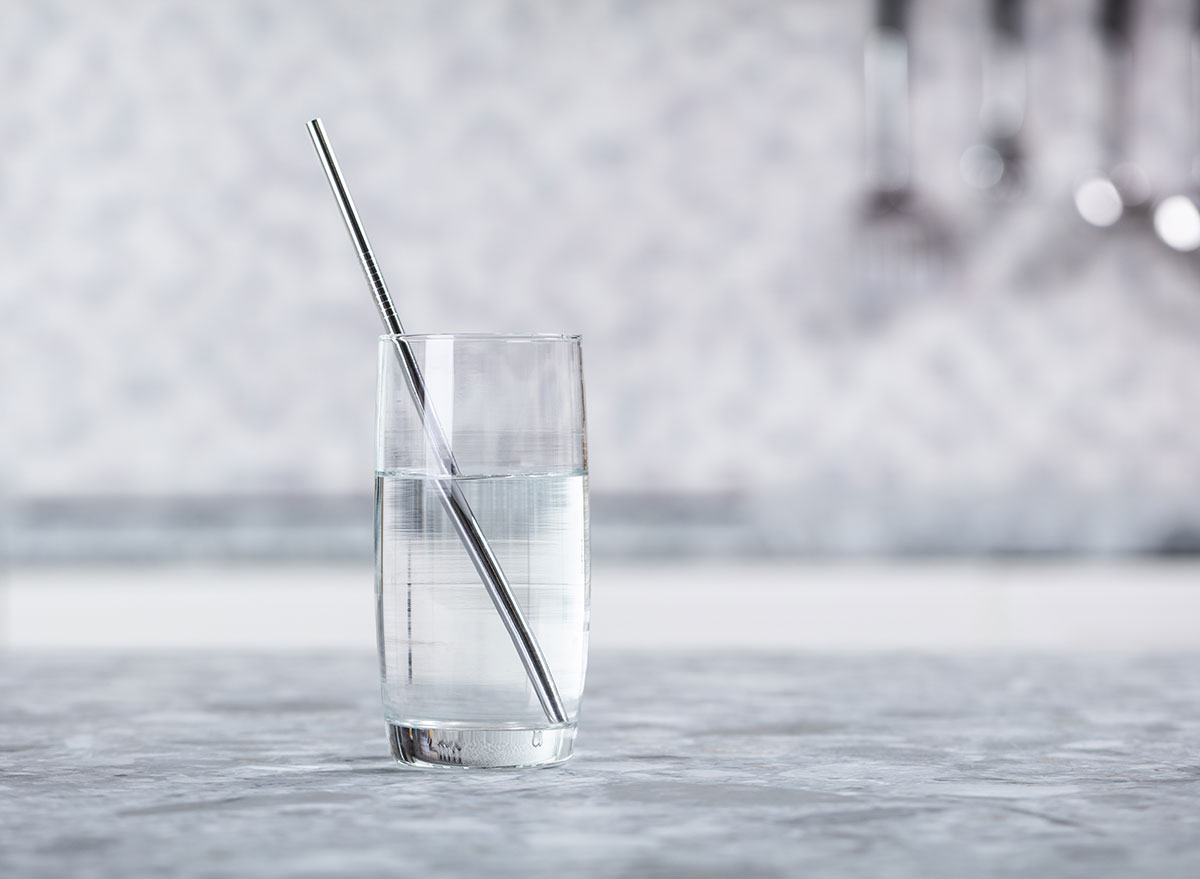
Liquid calories can sneak up on you if you are not careful and can be a major contributor to weight gain. From sugary sodas to sweet teas, drinking your calories is not a good idea if you want to maintain a lean body.
Sticking to calorie-free drinks like water, seltzer, and unsweetened tea can help keep you hydrated and help support weight management goals.
Eat more legumes.
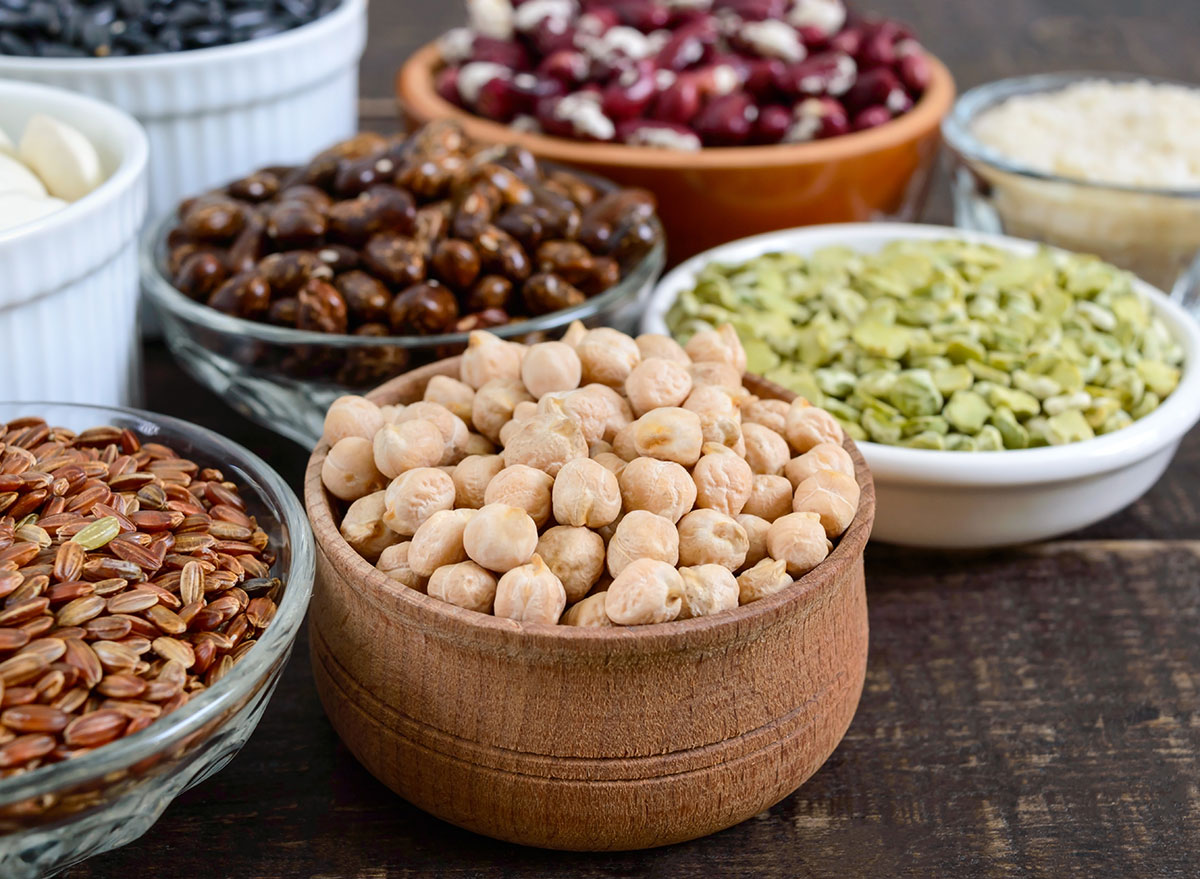
Peanuts, chickpea, and kidney beans—AKA legumes—are antioxidant and fiber-rich foods that are both versatile and delicious. And eating them may help promote satiety, thanks to their protein and fiber content.
And in a study published in the American Journal of Clinical Nutrition, those who ate a serving of legumes every day as part of a weight-loss plan lost weight.
Adopt the Mediterranean Diet.
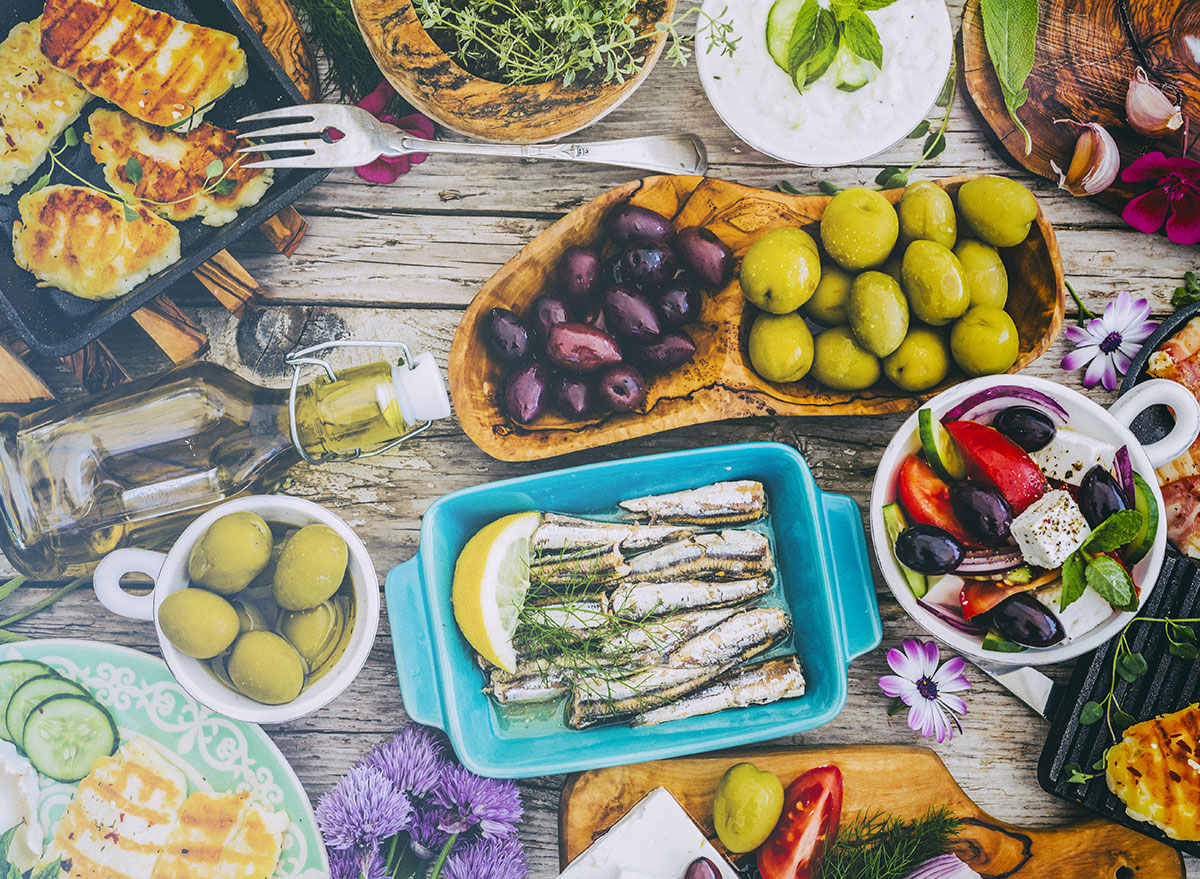
Eating as if you are living on a villa overlooking the Mediterranean Sea is hardly a sacrifice. Focusing on foods like olive oil, nuts, produce, and beans while limiting refined foods, concentrated sweets, and fried foods is a snapshot of the principles of the Mediterranean diet.
And in a study published in Canadian Medical Journal evaluating people aged at least 55 years old, those who ate a Mediterranean diet supplemented with olive oil experienced less central obesity compared to those who did not follow this dietary pattern.
Read this next:








